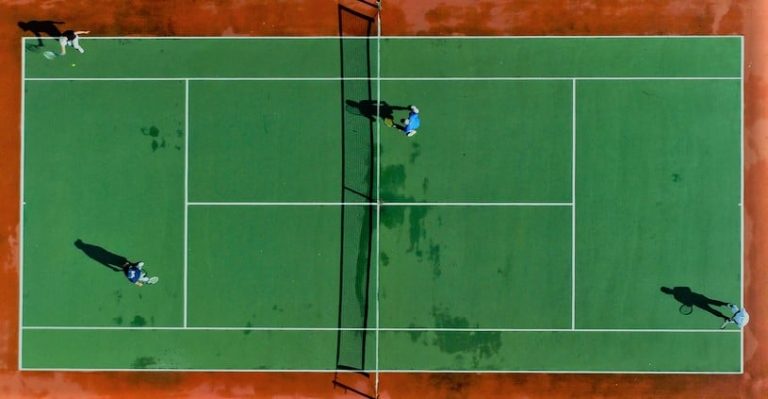why is tennis the best sport?

Tennis isn’t just a game; it’s a lifestyle. Known as “the sport of a lifetime,” tennis offers a unique blend of physical activity, mental stimulation, and social interaction. Extensive research confirms its immense health benefits, adaptability for all ages, and its ability to foster personal growth.
Let’s explore why tennis stands out as the ultimate sport.

A Lifetime of Benefits
Tennis is often regarded as the premier sport due to its remarkable versatility. It caters to a wide range of participants, from children mastering fundamental skills to young adults pursuing professional aspirations and retirees looking to maintain an active lifestyle.
In contrast to high-impact sports such as football or soccer, tennis can be customized to accommodate various skill levels, physical capabilities, and age demographics.
Interesting Fact:
Research indicates that tennis players enjoy an average lifespan that is 9.7 years longer than those who lead a sedentary lifestyle, surpassing the longevity benefits associated with other sports like soccer, cycling, swimming, and jogging.
Physical Health
Tennis offers a comprehensive workout that boosts overall strength, flexibility, and cardiovascular fitness. The sport’s energetic pace characterized by continuous movement, rapid sprints, and sudden changes in direction enhances agility, coordination, and speed.
The repetitive actions involved in swinging the racquet and striking the ball aid in muscle growth, increase bone density, and lower the likelihood of developing osteoporosis.
Additionally, engaging in tennis at a moderate intensity for a minimum of three hours each week can decrease the risk of mortality by 50%, irrespective of the underlying cause.
It is clear why this sport is considered one of the healthiest activities available.
Mental Stimulation
In addition to its physical advantages, tennis is fundamentally a strategic sport. Participants are required to think quickly, predict their opponent’s actions, and make immediate decisions.
This mental engagement not only enhances cognitive abilities but also fosters better problem-solving skills and encourages mindfulness.
The concentration demanded during a match serves to alleviate stress, elevate mood, and enhance overall mental health. Ultimately, tennis not only fortifies the body but also hones the mind.
Social Connection
Tennis is inherently a social activity. Whether engaging in singles or doubles matches, it promotes camaraderie, collaboration, and a spirit of sportsmanship.
The collective experience of competing on the court cultivates relationships that go beyond age, background, and skill level.
From informal matches with friends to competitive league play, tennis fosters enduring connections. It is a sport that genuinely unites individuals.
Accessibility and Affordability
Tennis is highly accessible to a wide audience. Many city parks feature courts, and the necessary equipment is minimal, consisting of only a racquet and tennis balls.
This low barrier to entry, combined with the abundance of available courts, positions tennis as one of the most inclusive sports globally.





